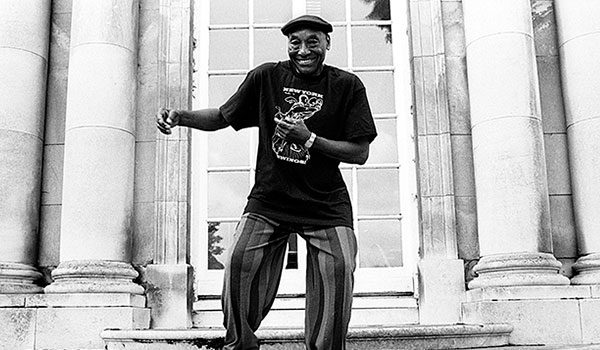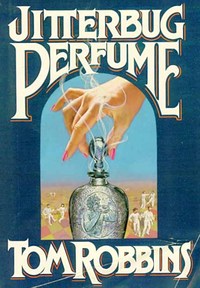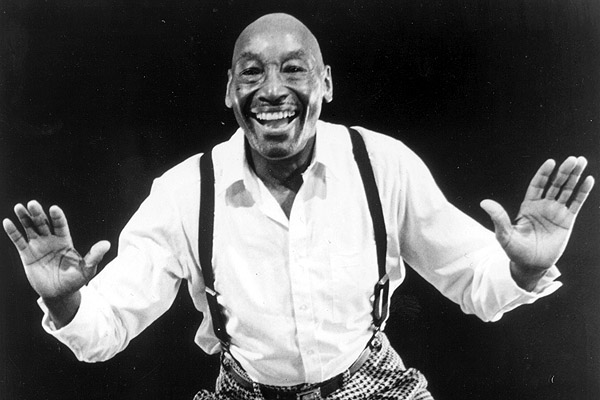
“Something wonderful happened to me. I was transported into the seventh heaven. All the gods sat there in assembly. By special grace I was accorded the favour of a wish. ‘Will you,’ said Mercury, ‘have youth, or beauty, or power, or a long life, or the prettiest girl, or any other of the many splendours we have in our chest of knick-knacks? So choose, but just one thing’. For a moment I was at a loss. Then I addressed myself to the gods as follows: ‘Esteemed contemporaries, I choose one thing: always to have laughter on my side.’ Not a single word did one god offer in answer; on the contrary they all began to laugh. From this I concluded that my prayer was fulfilled and that the gods knew how to express themselves with taste, for it would hardly have been fitting gravely to answer, ‘It has been granted to you.’” (1)
In my opinion, if Soren Kiekergaard, the author of these lines, had danced (and of course if he had been born a bit later in time ) he would have chosen Lindy Hop. What other dance could he have chosen, being a person who choses laughter when he could have wanted anything from the gods, and to whom the gods gave a reply in laughter?
Since we started this essay talking about a philosopher and a writer, let’s check the literature world for a bit. For instance Tango, with its seriousness and demand of mastership, is like Samuel Beckett or Franz Kafka. Classical Ballet (as befits the name), winks at Lev Tolstoy or Fyodor Mihailoviç Dostoyevski. Contemporary Dance, with its symbolism, games, openness to interpretation, and sometimes subtleness, recalls for Boris Vian. Restless, passionate, and feverish Salsa (the author of this essay, means original Cuban Salsa here), is a memory in Ernest Hemingway‘s mojito (of course Ernest Hemingway’s Cuba years has its share in this free association).
On the other hand, Lindy Hop is the Tom Robbins of dances. Likewise Robbins has a far famed novel called Jitterbug Perfume. The word “Jitterbug” refers to Swing dancers or Swing dances in general, and it can also be used to refer to Lindy Hop or another specific Swing dance. No matter which of these meanings Tom Robbins had in mind while naming his book, one thing is certain: the perfume who has the lead role in the book is a Swing dancer.

Also, in the same book Tom Robbins writes: “Philosophers have argued for centuries about how many angels can dance on the head of a pin, but materialists have known all along that it depends on whether they are jitterbugging or dancing cheek to cheek.” (2) (Your guess is correct! Robbins here refers to the song named “Cheek to cheek” to which we have danced countless times).
(Note for the ones who have not read the book: The book doesn’t have anything to do with Lindy Hop or Swing, at least not superficially. [Note inside the note: Tom Robbins’s passion for life and joy, connects him with Lindy Hop and Swing via indissoluble bonds.]).

Tom Robbins’s joy and playfulness, laughter and humour, mastership and wit, passion for life and wisdom, his attitude of being in the moment and meditation, undoubtedly makes him the Lindy Hop of the literature world. He also, like Soren Kierkegaard, choses laughter (and since he had been born a bit later in time, he grabs the chance to actually know Lindy Hop!) Who knows, maybe his famous aphorism “It is never too late to have a happy childhood” (3) did first appear to him while he was watching two Lindy Hoppers looking at each other in joy (I can hear you say “very low possibility”. As far as I am concerned though, this is a possibility that can’t be ignored, and it is as close to the reality as much as the others!)
That being the case, it does not come as a surprise that Tom Robbins’s perfume is a swing dancer. And it can only be expected from him to imagine angels jitterbugging on the head of a pin.
So if we go back to the beginning, the expectation of Lindy Hop from life is neither eternal beauty, nor fame, nor money. Lindy Hop wishes laughter from the gods, it wishes joy, and it wishes a zest for life. Lindy Hop knows that if these are not present, nothing else matters. The only thing Lindy Hop expects in return of these wishes is, like gods answer to Kierkegaard, a straightforward, prodigious laughter. Without any doubt, every single Lindy Hopper’s wish was granted.
Lindy Hop is able to take a joke. Lindy Hop does not seek for perfection. Lindy Hop does not dream of climbing up to the top of skyscrapers. Lindy Hop is a huge laughter that bursts into the faces of those who take life and themselves too seriously. It is the dance of the ones who can laugh at their own mistakes, who can say “imperfection is my signature” (4) and who embrace the motto “happiness is a choice.”
So laugh if you fall while you dance. Laugh if you miss your partner’s hand. Laugh if you can’t do what you want. Laugh when you listen to the music. Laugh when your partner does something nice. Laugh into your sleeve during the whole dance and when the dance is over, burst into laughter. Why? Because you will see that your most beautiful dance happens while you are at your most carefree, and most happy state; you look your best when you are having your most fun. Because either perfect or not, flawed or not, the most important thing is to enjoy the dance, to find joy in dance, and to live the moment in exactly that moment. These – as far as I am concerned – are Lindy Hop’s ultimate goals.
(1) Kiekergaard, S. (1992). Either / Or: A fragment of life. Translated by A. Hannay (Original work published in 1843). New York: Penguin Classics.
(2) Robbins, T. (1984). Jitterbug perfume. New York: Bantam Dell.
(3) Robbins, T. (1980). Still life with woodpecker. New York: Bantam Dell.
(4). Anar, İ. O. (2007). Suskunlar. İstanbul: İletişim Yayınları.
This section is widgetized. To add widgets here, go to the Widgets panel in your WordPress admin, and add the widgets you would like to Right Sidebar.
*This message will be overwritten after widgets have been added